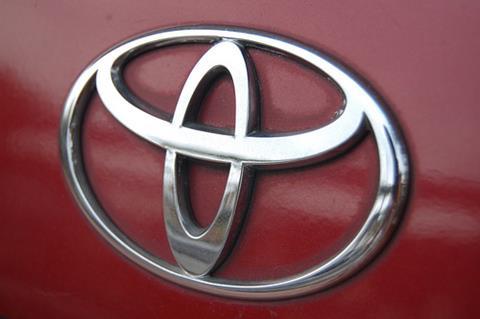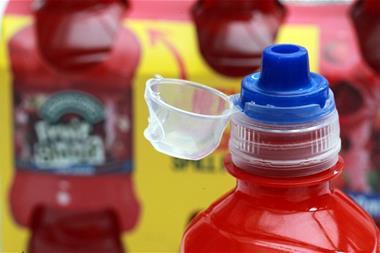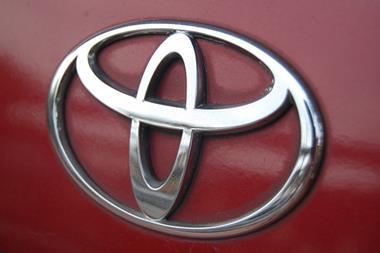Toyota’s latest mass car recall should serve as a stark reminder to all companies about the need to have a proactive risk-mitigation strategy

As Benjamin Franklin once famously wrote, there are only two sure things in life: death and taxes. But if you work in any area of manufacturing, or retail on a large scale, then you might as well add a third certainty: the product recall.
This truism was something that Japanese car manufacturer Toyota discovered for the second time in three years last month, when it announced the biggest single product recall since 1996.
The move affects more than seven million vehicles worldwide, including some Yaris, Corolla and Camry models, which were produced with faulty window switches. All of this was despite the fact that, according to Toyota, there had been no reports of accidents, injuries or deaths as a result of the problem.
The company wouldn’t say how much it estimates the recall will cost. But given that it affects 1.39 million cars in Europe, 138,000 in the UK, 2.47 million in the USA, and 1.4 million in China, which equates to roughly the entire sales from the last financial year, it’s safe to say that shareholders will be expecting a hit on profits.
Just as in 2009, when Toyota issued a mass recall after potential accelerator problems were discovered in some of its vehicles, the company’s defence is that it takes a responsible manufacturer to issue a recall like this, and that customers should be reassured. Despite this, it’s hard to avoid the conclusion that this mistake will be very costly to both the brand and the bottom line, although not nearly as costly as the alternative - a potential liability for corporate negligence on a massive scale.
But it certainly isn’t just the manufacturers of complex products like cars that need to be aware of recall risks. Food, pharmaceuticals, furniture, clothes, cars, toys, white goods - almost every product has been subject to recalls when faults have been identified that place customers in danger. The risk has increased dramatically as supply chains have grown more complex, with more sourced from overseas environments that have potentially loose or poorly enforced quality regulations. A quick scan of current recalls, published by the Trading Standards Institute, lists everything from beer, to hot water bottles, beds, electric lamps and oven cleaners.
Traceability is key
Recall is a risk that every business has to be on top of to understand their exposures. Trading Standards Institute product and consumer safety lead officer Christine Heemskerk says: “It’s an extremely complex risk and hard to generalise.
“Traceability is key, both forwards and backwards. It’s essential to not only know exactly what has happened where during the manufacturing process, and where raw materials and ingredients are coming from, but also where products have gone when they have left the factory or retail outlet to enable quick communication with customers.
“For some businesses, particularly those retailing online, getting in touch with customers can be as simple as sending an email. Similarly, in those cases where customers register a product, such as with large white goods, there is a direct link. In other instances it can be much more complex.”
The key thing is communication. “It’s always best to be open and honest about any problem,” Heemskerk says. “Inform the authorities and make sure you contact as many people as possible, in whatever way is appropriate. Don’t just put advertisements in one newspaper; think about things like social media. The appropriate response is very industry-specific.”
Proactive communication
It’s vital to see the recall as part of an overall communication strategy, whichever way you choose to play it. While some companies approach recalls as a positive for their brand and an opportunity to show they are caring and in control, others prefer to play down the impact wherever possible. In all cases, the presence of up-to-date crisis and business continuity plans is vital.
Companies working across several countries will need to be aware that local consumer protection laws will have specific requirements for when a recall is compulsory, and how it is carried out. Generally, the obligation will be on everyone in the supply chain to co-operate with a recall, although the authorities will tend to want to work with those at the top of the hierarchy with the most power to mitigate risk to the public.
It’s also crucial to be proactive, not only by insisting on the best quality control on the factory floor, but by actually looking out into the marketplace. “Get people out and buy some of your products in a retail setting and get them tested,” Heemskerk says. “Also, having a proper complaints procedure is very important. Make sure you don’t just log complaints, but actively analyse trends and relate them to particular batches.”
In short, be all eyes and ears when it comes to product safety. But also be prepared, because things do go wrong, and how you correct that mistake can make all the difference. At stake is the single most important thing in the relationship between you and your customers: trust.




















No comments yet